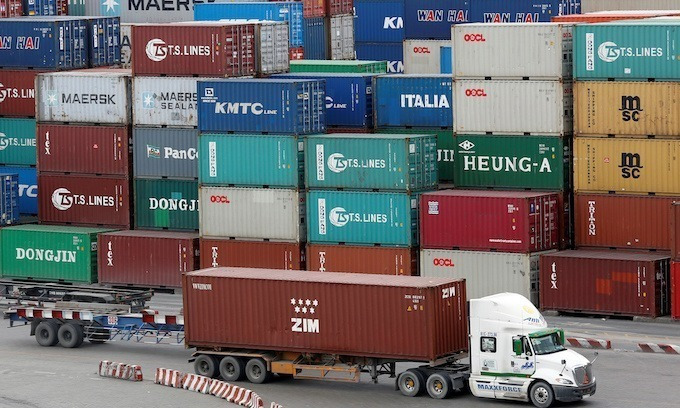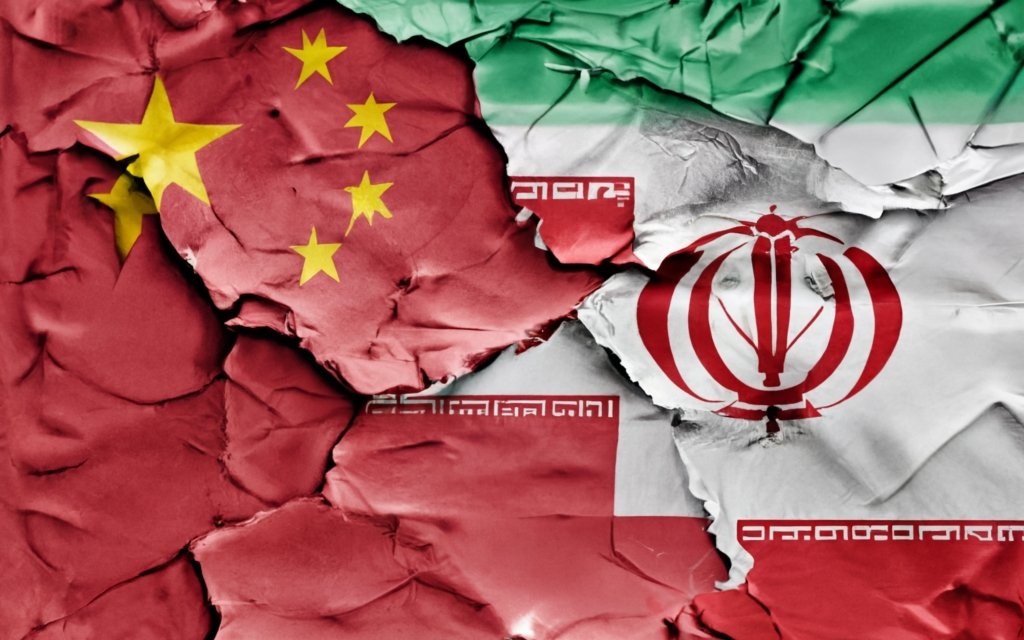If you are looking for a reliable and cost-effective way to ship goods from China to Iran, you may have many questions and concerns. How do you choose the best shipping method for your needs? What documents and customs procedures do you need to follow? How much will it cost and how long will it take? How do you deal with potential risks and challenges along the way?
Understanding the shipping process

Shipping from China to Iran involves several steps and stages, depending on the mode of transport, the origin and destination points, and the type and volume of goods. Here is a general overview of the shipping process:
- Preparation: Before you ship your goods, you need to prepare them for transportation. This includes packing, labeling, weighing, measuring, and inspecting your goods. You also need to prepare the necessary documents, such as invoices, packing lists, certificates of origin, bills of lading, and customs declarations.
- Pick-up: Once your goods are ready, you need to arrange for the pick-up of your goods from the supplier or manufacturer in China. You can either do this yourself or hire a freight forwarder or a courier company to do it for you. The pick-up service will collect your goods and transport them to the nearest port, airport, or railway station, depending on the mode of transport you choose.
- Transportation: After your goods are picked up, they will be transported from China to Iran by sea, air, rail, or road. Depending on the route and the mode of transport, your goods may pass through one or more transit points, such as intermediate ports, airports, or border crossings. At each point, your goods may be subject to inspection, loading, unloading, and transfer.
- Clearance: When your goods arrive at the final destination point in Iran, they will need to clear customs and undergo inspection. You or your agent will need to submit the required documents and pay the applicable duties and taxes. You may also need to comply with other regulations, such as health, safety, and quality standards.
- Delivery: After your goods clear customs, they will be ready for delivery to the final consignee or recipient in Iran. You can either arrange for the delivery yourself or use a local courier or delivery service. The delivery service will transport your goods from the port, airport, or railway station to the final address.
Choosing the right shipping method

One of the most important decisions you need to make when shipping from China to Iran is the mode of transport. There are four main options to choose from: sea, air, rail, and road. Each option has its own advantages and disadvantages, depending on your specific needs and preferences. Here are some factors to consider when choosing the right shipping method:
- Cost: The cost of shipping from China to Iran varies depending on the mode of transport, the distance, the weight and volume of the goods, the fuel prices, the exchange rates, and the market demand and supply. Generally speaking, sea freight is the cheapest option, followed by rail freight, air freight, and road freight. However, the cost may also depend on other factors, such as the availability of space, the frequency of service, and the level of competition.
- Speed: The speed of shipping from China to Iran also depends on the mode of transport, the route, the weather, the traffic, and the customs procedures. Generally speaking, air freight is the fastest option, followed by rail freight, road freight, and sea freight. However, the speed may also depend on other factors, such as the reliability of the service, the transit times, and the delivery options.
- Reliability: The reliability of shipping from China to Iran refers to the likelihood of your goods arriving on time and in good condition. This depends on the mode of transport, the quality of the service, the security of the goods, and the risk of delays, damages, or losses. Generally speaking, air freight is the most reliable option, followed by rail freight, sea freight, and road freight. However, the reliability may also depend on other factors, such as the weather, the political situation, and the customs clearance.
- Capacity: The capacity of shipping from China to Iran refers to the amount of space available for your goods on the transport vehicle. This depends on the mode of transport, the size and shape of the goods, the packaging, and the loading and unloading methods. Generally speaking, sea freight has the highest capacity, followed by rail freight, road freight, and air freight. However, the capacity may also depend on other factors, such as the demand and supply, the availability of containers, and the booking conditions.
- Environmental impact: The environmental impact of shipping from China to Iran refers to the amount of greenhouse gas emissions and other pollutants generated by the transport vehicle. This depends on the mode of transport, the fuel consumption, the distance, and the efficiency of the vehicle. Generally speaking, sea freight has the lowest environmental impact, followed by rail freight, road freight, and air freight. However, the environmental impact may also depend on other factors, such as the type of fuel, the age of the vehicle, and the emission standards.
Documentation and customs requirements

Another important aspect of shipping from China to Iran is the documentation and customs requirements. You need to prepare and submit the correct documents and comply with the relevant regulations to avoid delays, penalties, or rejections. Here are some of the main documents and requirements you need to know:
- Invoice: An invoice is a document that shows the details of the transaction between the seller and the buyer, such as the names and addresses of the parties, the description and value of the goods, the terms of payment, and the delivery details. You need to provide an invoice for every shipment from China to Iran, as it is used for customs valuation, duty calculation, and trade statistics.
- Packing list: A packing list is a document that shows the details of the packing of the goods, such as the number and type of packages, the weight and volume of each package, the marks and numbers of each package, and the contents of each package. You need to provide a packing list for every shipment from China to Iran, as it is used for customs inspection, cargo identification, and freight calculation.
- Certificate of origin: A certificate of origin is a document that shows the origin of the goods, i.e., the country where the goods were produced or manufactured. You need to provide a certificate of origin for every shipment from China to Iran, as it is used for customs classification, duty preference, and trade policy.
- Bill of lading: A bill of lading is a document that shows the details of the transportation of the goods, such as the names and addresses of the shipper and the consignee, the name and number of the vessel, the port of loading and the port of discharge, the date of shipment, and the quantity and description of the goods. You need to provide a bill of lading for every sea freight shipment from China to Iran, as it is used as a contract of carriage, a receipt of goods, and a document of title.
- Air waybill: An air waybill is a document that shows the details of the transportation of the goods by air, such as the names and addresses of the shipper and the consignee, the name and number of the flight, the airport of departure and the airport of arrival, the date of shipment, and the quantity and description of the goods. You need to provide an air waybill for every air freight shipment from China to Iran, as it is used as a contract of carriage, a receipt of goods, and a non-negotiable document.
- Rail waybill: A rail waybill is a document that shows the details of the transportation of the goods by rail, such as the names and addresses of the shipper and the consignee, the name and number of the train, the station of departure and the station of arrival, the date of shipment, and the quantity and description of the goods. You need to provide a rail waybill for every rail freight shipment from China to Iran, as it is used as a contract of carriage, a receipt of goods, and a non-negotiable document.
- Road waybill: A road waybill is a document that shows the details of the transportation of the goods by road, such as the names and addresses of the shipper and the consignee, the name and number of the truck, the place of departure and the place of arrival, the date of shipment, and the quantity and description of the goods. You need to provide a road waybill for every road freight shipment from China to Iran, as it is used as a contract of carriage, a receipt of goods, and a non-negotiable document.
- Customs declaration: A customs declaration is a document that shows the details of the customs clearance of the goods, such as the name and address of the importer, the name and address of the exporter, the origin and destination of the goods, the tariff code and description of the goods, the value and quantity of the goods, the duty and tax payable, and the mode of payment. You need to provide a customs declaration for every shipment from China to Iran, as it is used for customs assessment, control, and statistics.
- Other documents: Depending on the type and nature of the goods, you may also need to provide other documents, such as certificates of inspection, quality, health, safety, or conformity, licenses, permits, or authorizations, or invoices for services or royalties. You need to check with the relevant authorities in China and Iran for the specific requirements and regulations for your goods.
Shipping costs and fees

The shipping costs and fees from China to Iran depend on various factors, such as the mode of transport, the distance, the weight and volume of the goods, the fuel prices, the exchange rates, and the market demand and supply. In addition to the transportation costs, you may also need to pay for other costs and fees, such as:
- Packing and handling costs: These are the costs of preparing, packing, labeling, and handling your goods for transportation. You may need to pay for the materials, labor, and equipment involved in this process.
- Pick-up and delivery costs: These are the costs of collecting and delivering your goods from and to the origin and destination points. You may need to pay for the local transportation, loading, and unloading services involved in this process.
- Documentation and administration costs: These are the costs of preparing, processing, and submitting the required documents and forms for the shipment. You may need to pay for the printing, copying, and courier services involved in this process.
- Customs duties and taxes: These are the charges levied by the customs authorities in China and Iran for the import and export of the goods. You may need to pay for the customs valuation, classification, and calculation of the duties and taxes applicable to your goods.
- Customs clearance and inspection fees: These are the fees charged by the customs agents or brokers in China and Iran for the clearance and inspection of the goods. You may need to pay for the services of filing, submitting, and presenting the documents and goods to the customs authorities.
- Storage and warehousing fees: These are the fees charged by the storage and warehousing facilities in China and Iran for the storage and handling of the goods. You may need to pay for the space, security, and maintenance of the goods in the facilities.
- Insurance premiums: These are the charges paid to the insurance companies or providers for the insurance coverage of the goods. You may need to pay for the insurance policy, premium, and deductible for the protection of the goods against potential risks and damages.
- Other costs and fees: Depending on the situation and the service provider, you may also need to pay for other costs and fees, such as surcharges, fines, penalties, or extra charges for special services or circumstances.
Transit times and delivery options

The transit times and delivery options from China to Iran vary depending on the mode of transport, the route, the weather, the traffic, and the customs procedures. Generally speaking, the transit times and delivery options are as follows:
- Sea freight: The transit time for sea freight from China to Iran ranges from 15 to 30 days, depending on the port of departure and the port of arrival. The delivery options for sea freight are:
- Full container load (FCL): This is when you ship a full container of goods, either 20-foot or 40-foot, from China to Iran. You have exclusive use of the container and you pay a flat rate for the transportation. This option is suitable for large, heavy, or bulky shipments that can fill up a whole container.
- Less than container load (LCL): This is when you ship a partial container of goods, usually less than 15 cubic meters, from China to Iran. You share the container and the transportation costs with other shippers. This option is suitable for small, light, or irregular shipments that cannot fill up a whole container.
- Air freight: The transit time for air freight from China to Iran ranges from 3 to 7 days, depending on the airport of departure and the airport of arrival. The delivery options for air freight are:
- Express: This is when you ship your goods by air using a courier or express service, such as DHL, FedEx, or UPS, from China to Iran. You get the fastest and most reliable service, with door-to-door delivery, online tracking, and customs clearance included. This option is suitable for urgent, valuable, or perishable shipments that need to arrive as soon as possible.
- Standard: This is when you ship your goods by air using a freight forwarder or a cargo airline, such as China Airlines, Iran Air, or Turkish Airlines, from China to Iran. You get a more economical and flexible service, with airport-to-airport delivery, online tracking, and customs clearance arranged by yourself or your agent. This option is suitable for regular, non-urgent, or non-perishable shipments that can afford some delay.
- Rail freight: The transit time for rail freight from China to Iran ranges from 10 to 20 days, depending on the railway station of departure and the railway station of arrival. The delivery options for rail freight are:
- Container train: This is when you ship your goods by rail using a container train service, such as the China-Europe Railway Express or the Trans-Asia Railway, from China to Iran. You get a fast and secure service, with station-to-station delivery, online tracking, and customs clearance included. This option is suitable for medium to large shipments that need to arrive faster than sea freight but cheaper than air freight.
- Conventional train: This is when you ship your goods by rail using a conventional train service, such as the China Railway or the Islamic Republic of Iran Railways, from China to Iran. You get a more economical and flexible service, with station-to-station delivery, online tracking, and customs clearance arranged by yourself or your agent. This option is suitable for small to medium shipments that can afford some delay and risk.
- Road freight: The transit time for road freight from China to Iran ranges from 15 to 25 days, depending on the border crossing point and the road condition. The delivery options for road freight are:
- Truck: This is when you ship your goods by road using a truck service, such as the China-Pakistan Economic Corridor or the International North-South Transport Corridor, from China to Iran. You get a direct and flexible service, with door-to-door delivery, online tracking, and customs clearance included. This option is suitable for small to large shipments that need to arrive faster than sea freight but cheaper than air freight.
- Bus: This is when you ship your goods by road using a bus service, such as the China-Kyrgyzstan-Uzbekistan Bus Service or the Iran-Turkey Bus Service, from China to Iran. You get a more economical and convenient service, with terminal-to-terminal delivery, online tracking, and customs clearance arranged by yourself or your agent. This option is suitable for personal or small shipments that can afford some delay and risk.
Dealing with customs and regulations

One of the most challenging aspects of shipping from China to Iran is dealing with the customs and regulations of both countries. You need to comply with the relevant laws and rules to avoid delays, penalties, or rejections. Here are some of the main customs and regulations you need to know:
- Customs tariff: The customs tariff is the schedule of duties and taxes levied by the customs authorities on the import and export of goods. The customs tariff varies depending on the origin, destination, and classification of the goods. You can check the customs tariff of China and Iran online or consult with your freight forwarder or customs agent.
- Free trade agreement: The free trade agreement is the treaty or pact that establishes preferential trade terms between two or more countries. The free trade agreement may reduce or eliminate the customs duties and taxes on the import and export of goods. China and Iran are currently negotiating a free trade agreement, which is expected to be signed in the near future. You can check the status and details of the free trade agreement online or consult with your freight forwarder or customs agent.
- Sanctions and embargoes: The sanctions and embargoes are the restrictions or prohibitions imposed by one or more countries on the trade or economic activities of another country. The sanctions and embargoes may affect the import and export of certain goods, services, or persons. China and Iran are both subject to various sanctions and embargoes by the United States and other countries, which may affect the shipping from China to Iran. You can check the sanctions and embargoes of China and Iran online or consult with your freight forwarder or customs agent.
- Restricted and prohibited goods: The restricted and prohibited goods are the goods that are subject to special regulations or bans by the customs authorities or other agencies. The restricted and prohibited goods may require additional documents, licenses, permits, or authorizations, or may be denied entry or exit. Some of the restricted and prohibited goods from China to Iran include weapons, explosives, drugs, alcohol, tobacco, animals, plants, food, medicine, cosmetics, cultural relics, and intellectual property. You can check the restricted and prohibited goods of China and Iran online or consult with your freight forwarder or customs agent.
Shipping insurance and liability

Another important aspect of shipping from China to Iran is the shipping insurance and liability. You need to protect your goods against potential risks and damages during the transportation and ensure that you have the right coverage and compensation in case of any loss or claim. Here are some of the main points you need to know:
- Shipping insurance: Shipping insurance is the policy or contract that provides coverage and compensation for the goods in case of any loss or damage during the transportation. You can purchase shipping insurance from the insurance company or provider, or from the freight forwarder or the carrier. The shipping insurance may cover the full value or a percentage of the value of the goods, depending on the type and level of the insurance. The shipping insurance may also cover the freight costs, the customs duties and taxes, and the other costs and fees associated with the shipment. The shipping insurance may have some exclusions or limitations, such as the deductible, the excess, or the maximum liability. You need to check the terms and conditions of the shipping insurance carefully and make sure that you have adequate coverage and compensation for your goods.
- Shipping liability: Shipping liability is the responsibility or obligation of the freight forwarder or the carrier for the goods in case of any loss or damage during the transportation. The shipping liability may vary depending on the mode of transport, the route, the service, and the contract. The shipping liability may be based on the weight, the volume, or the value of the goods, depending on the applicable law or convention. The shipping liability may also have some exceptions or defenses, such as the force majeure, the inherent vice, or the contributory negligence. You need to check the terms and conditions of the shipping liability carefully and make sure that you have adequate protection and recourse for your goods.
Tips for successful shipping from China to Iran

To ensure a smooth and successful shipping from China to Iran, you need to follow some best practices and tips, such as:
- Plan ahead: You need to plan your shipment well in advance and consider all the factors and options involved. You need to choose the best shipping method, the best service provider, and the best delivery option for your needs and preferences. You also need to prepare your goods, your documents, and your budget accordingly.
- Do your research: You need to do your research and gather all the information and knowledge you need for your shipment. You need to check the customs tariff, the free trade agreement, the sanctions and embargoes, and the restricted and prohibited goods of China and Iran. You also need to check the transit times, the shipping costs and fees, and the shipping insurance and liability of the freight forwarder or the carrier.
- Hire a professional: You need to hire a professional and reputable freight forwarder or customs agent to handle your shipment. You need to choose a freight forwarder or customs agent that has experience and expertise in shipping from China to Iran. You also need to choose a freight forwarder or customs agent that has good communication and customer service skills. A freight forwarder or customs agent can help you with the logistics, the documentation, and the customs clearance of your shipment.
- Pack and label properly: You need to pack and label your goods properly and securely for transportation. You need to use the appropriate materials, methods, and equipment for packing your goods. You also need to use the correct and clear marks, numbers, and labels for identifying your goods. Packing and labeling your goods properly and securely can prevent damages, losses, or delays of your shipment.
- Track and monitor your shipment: You need to track and monitor your shipment regularly and closely during the transportation. You need to use the online tracking tools or the tracking numbers provided by the freight forwarder or the carrier. You also need to contact the freight forwarder or the carrier or your agent if you have any questions or concerns about your shipment. Tracking and monitoring your shipment regularly and closely can ensure that your shipment is on track and on time.
Conclusion: Streamlining your shipping process
Shipping from China to Iran can be a complex and challenging process, but it can also be a rewarding and profitable one. By understanding the shipping process, choosing the right shipping method, preparing the required documents and customs requirements, calculating the shipping costs and fees, estimating the transit times and delivery options, dealing with the customs and regulations, and securing the shipping insurance and liability, you can streamline your shipping process and achieve a smooth and successful shipment. You can also follow some best practices and tips, such as planning ahead, doing your research, hiring a professional, packing and labeling properly, and tracking and monitoring your shipment, to enhance your shipping experience and satisfaction. By shipping from China to Iran, you can expand your market, increase your sales, and grow your business.


